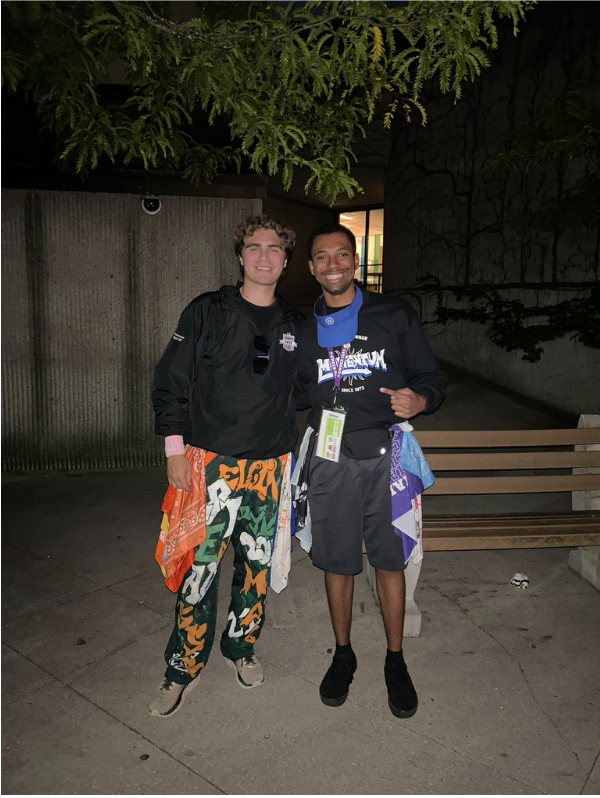Holistic Approach to Anti-GBSV
- SSSC Western

- Feb 4, 2023
- 3 min read
Updated: Nov 1, 2023
Holistic Approach to Anti-GBSV: An Analysis of course themes in Governance, Leadership and Ethics - GLE 4001 Fall Reflection
Synopsis- the assignment instructions prescribe reflection on course themes based on the syllabus. Specifically, with regard to one's intellectual development, post-graduate plans and areas of interest or controversy. Apart from broader analyses of the course and how it integrates into the syllabus, I've highlighted the focus on anti-GBSV overall and specifically with the London SafeCities program. The reflection is rounded out with suggestions on improving representation and dimensionality as well as benefits of an holistic approach to anti-GBSV.
To me, this course epitomizes the structure of the GLE program. I almost view the whole program, particularly the governance and leadership portions, as one course and this class as the final project. That in itself is quite unique to me as it is an unprecedented level of continuity in academic modules. I find even higher levels of correlation between the capstone course and introduction to governance class than the overall program continuum. As such, certain concepts and theories stand out strongly over others. In certain ways, this is beneficial as it enables a reification of my intellectual learning and development. The emphasis on theories of change and subsequent manifestation of actionable items is very helpful in terms of connecting abstraction and action; which I have struggled with historically. While I ponder on attending post-graduate school immediately after my the completion of my undergraduate degree(s) as opposed to finding work first to implement my learnings, such course themes and outcomes aid my confidence in seeking employment in the fields of study I currently engage in.
Another theme that stands out to me, albeit with a caveat, is the lens of gender equality as central to this course; the Safe Cities program and its subsequent thematization for this course being the most prominent example. Understanding lack of safety for women and girls as a global, largescale problem is crucial to navigating the world and is an admirable focus for this program. Where the caveat lies though, is in the incognizance of transgender and nonbinary (as an umbrella term for gender identities outside the gender binary) peoples in the framework of safety. Granted, there are many different factors that affect safety and other classifications of at-risk populations. However, the discourse here is around a gendered framework and as such, cannot be limited to man and woman. This is a common shortcoming in academic discourse and it is disappointing that it should manifest in a program geared towards the social sciences. By no means does this mean a reduction of focus on (cis) women but the statistics support the reality of trans and nonbinary people not provided spatial security.
Continuing with the theme of spatial safety, Gender Based and Sexual Violence (GSBV) analysis in this course has caught my attention. Despite being a gender studies major, the statistical policy framework we have explored thus far is one that I hadn’t come across previously. Throughout the course outline, this framework continues via related topics that are discourses under the Anti-GBSV umbrella. Some may find this to be a controversial discourse but I see it as a required one as well as one that influences innovative approaches to widespread issues. This is not only beneficial to understanding the nuances and complexities of GBSV but also to analyzing various lenses for particular problems and choosing the best possible approach; whether that be a specific framework or an amalgamation of frameworks.
To conclude, the course themes appeal to me because they promote innovation, creativity and specificity in problem-solving. Moreover, the practical landscape as it exists is acknowledged, but not as a barrier. Rather, it is factored in relation to place-based policy, so as to precipitate detailed plans that are specific to the respective region(s). As I graduate in two years’ time, I am not immediately certain of my future afterwards. I would like to attend a post-graduate institution but I don’t know if I want to do that directly after graduating or after finding employment and working for a few years. Though I have remarked on this previously, at this juncture it serves this reflection well to reiterate that in the face of intense uncertainty and indecisiveness, a program such as GLE offers the skills and learnings to be confident regardless. Should I immediately pursue a post-graduate degree, I know that I would be intellectually ready to raise my academic level by virtue of the critical thinking and unconventionality of the GLE program. In the case of employment, I am confident about the transferable skills I have developed as well as my ability to solve problems and apply different lens to a variety of issues. This is all supplemented by the course themes and topics, in such a way that prepares one for what comes after.
Written By: Siddarth Maheshwari






Comments